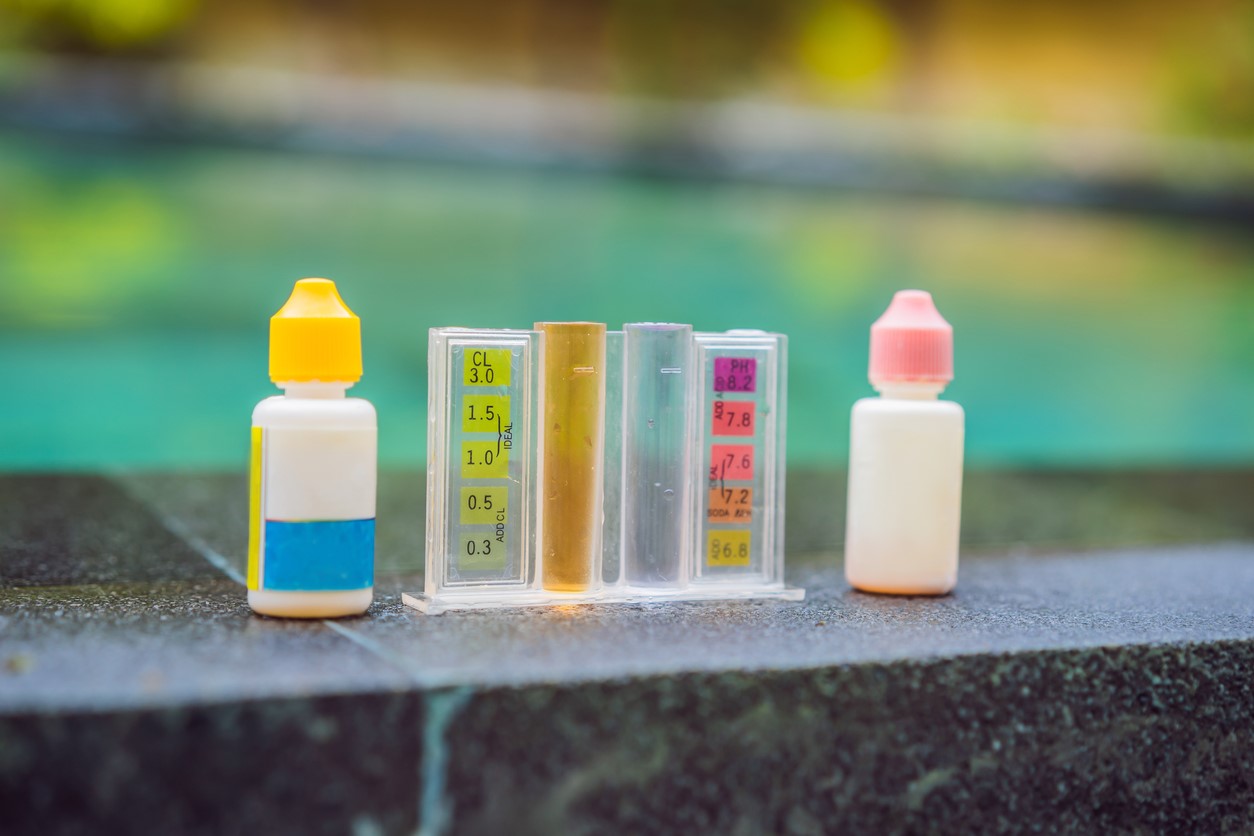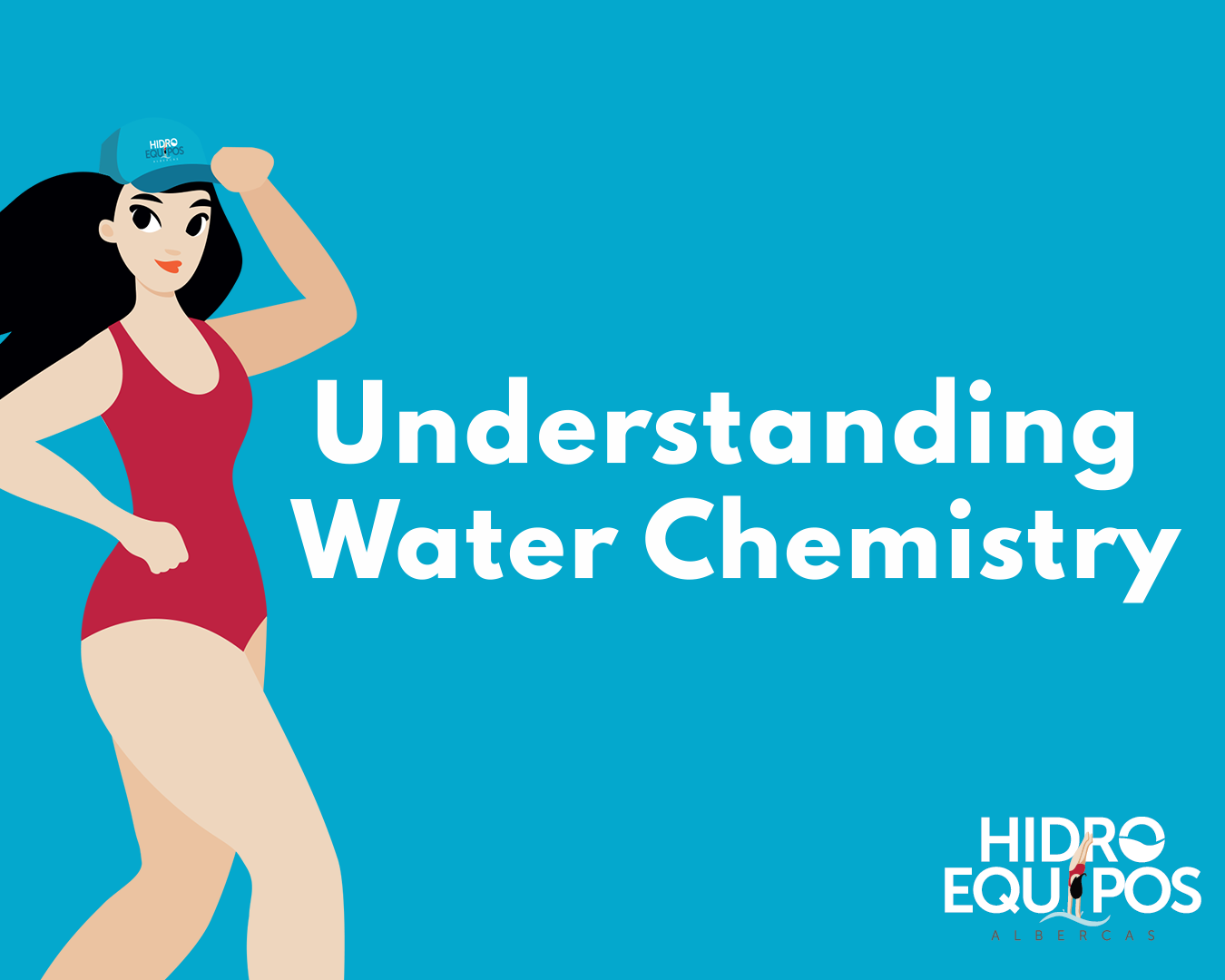
The chemistry of your swimming pool water is integral to maintaining a safe, healthful environment to swim and lounge, but it can seem confusing. If pH levels and alkalinity levels baffle you, or if you simply lack the time to spend treating, shocking, and testing your pool water, talk to a professional pool service company in the area. There is a lot to know when it comes to treating your pool, and the big three are chlorination, pH, and alkalinity. You don’t need a Ph.D. to understand water chemistry; consider the following tips when it comes to treating your pool:
Chlorine
Most pool owners understand the vital importance of treating their water with chlorine. It kills bacteria, prevents algae, and can even help prevent the spread of COVID-19, according to industry resources. Chlorine also oxidizes contaminants and pollutants that find their way in your pool, like dirt, foliage, and debris. Some people find that they need to ‘shock’ the water, which entails super-chlorinating the water with chlorine products to rid the water of ammonia and combined chlorine, in cases where a swimmer sweats or urinates in the water. During times of heavy use, like in the hot summertime, it is recommended that pool owners super-chlorinate their water at least once per week to maintain a safe and clean pool.
Free Chlorine levels are the most important levels to pay attention to when maintaining a pool. If the chlorine level is too low, algae can grow, spread, and the surface will be greasy and slick. Algae also renders a pool unsafe for swimming because if algae can live in the water so too can bacteria and viruses. Check Chlorine levels frequently to ensure safety for all who swim there. Most experts agree that chlorine levels should be tested at least weekly during swim seasons and chlorine should be added routinely in residential pools.
PH – Acidity/Basicity
Probably the most common chemical formula related to a swimming pool is the pH level, and as such, it is often the most daunting and concerning. PH refers to the acidity or basicity of the water in the pool. It is recommended that the pH level is checked weekly, or more frequently during times of heavy usage, or at least until you gain a solid understanding and familiarity with your distinct residential pool’s pH. The magic number when it comes to pH is between 7 and 8, though ideally around 7.6 to 7.8. When pH levels dip below 7, you may notice eye or skin irritation after swimming or exposure. High pH levels can be identified by calcium scaling in and around the pool’s water. Talk to your pool service provider about products to increase or decrease pH. Some suggestions include using muriatic acid to lower levels (per manufacturer’s directions) and sodium bicarbonate or soda ash to increase pH levels, again with the advice of a pool professional.
You should avoid swimming and prevent others from getting in the pool when the pH or chlorine levels are off. Make testing the water part of your weekly routine tasks during warmer weather or when the pool gets the most use. Teach others in the home to test and troubleshoot the pH levels, too. You really don’t need a Ph.D. to test the pH of your swimming pool – you just need the right supplies and know-how!
Alkalinity
You want to make sure that your water is able to handle and adjust to changes in the pH levels of the water. For this reason, you should check the alkalinity of your pool. When the alkaline level is too low, it is hard to maintain a consistent and safe pH level; when the alkalinity is too high, the pH tends to increase and be higher than the norm. It is possible to increase alkalinity with baking soda but always consult with your pool service technician for insight and assistance in maintaining favorable alkalinity for your swimming pool.
Some other things to know about chemically treating your swimming pool include this information:
Calcium Hardness
Do you know how much Calcium is in the water? This is important to note because if there is not a high-enough level of calcium, the water will take what it needs in terms of calcium from your pool’s surface, stone, decking, concrete, plaster, or tile, creating lasting damage that is costly to repair. The calcium hardness level indicated the level in your pool which can point to whether you need to add calcium to the water. Got a vinyl pool liner? Then you are in luck! You don’t need to worry about the repercussions of low calcium on this surface as the vinyl doesn’t possess calcium nor does it pose a risk of being damaged by low-calcium pool water.
Cyanuric Acid
Cyanuric acid or CA is a protectant agent used to maintain the strength of chlorine from sunlight, the elements, and exposure, in your treated swimming pool. This product is also called a conditioner or stabilizer and is found widely at pool supply vendors. If the CA level is quite high, you need more chlorine to counter that. Typically, granulated CA is placed in a mesh bag of sorts and positioned in the pool’s skimmer basket; after adding this chemical, make sure to run the pump for a period of at least 24 hours. Think of this step as a preventative measure to ensure the chlorine is able to remain effective and do its job properly.
Salt
Is your pool a saltwater pool? If so, this changes things and owners should consult with pool professionals to learn more about maintaining saltwater swimming pools. Many add a degree of salt to the water to enhance the tactile feeling of the water, though it may not be enough to give the water a salty taste. How much salt should be added? That depends on things like the size of your pool, water capacity, type of pool, and personal preference.
Phosphates
Finally, what is the deal with Phosphates? Phosphates contribute to and feed algae, which is why water is treated to remove these from the swimming pool. Chlorine is the most effective way to remove the algae that bloom, but specialty products are needed to remove the phosphates. There are several products on the market called phosphate removers that can also address the issue. Talk to a qualified pool treatment professional to learn more about these methods in unusually high or extreme phosphate situations.
For more assistance treating and maintaining your swimming pool, contact the industry experts at Hidroequipos! Our team has been servicing pools for generations, and we want to be your full-service pool company, too! Contact us today!




